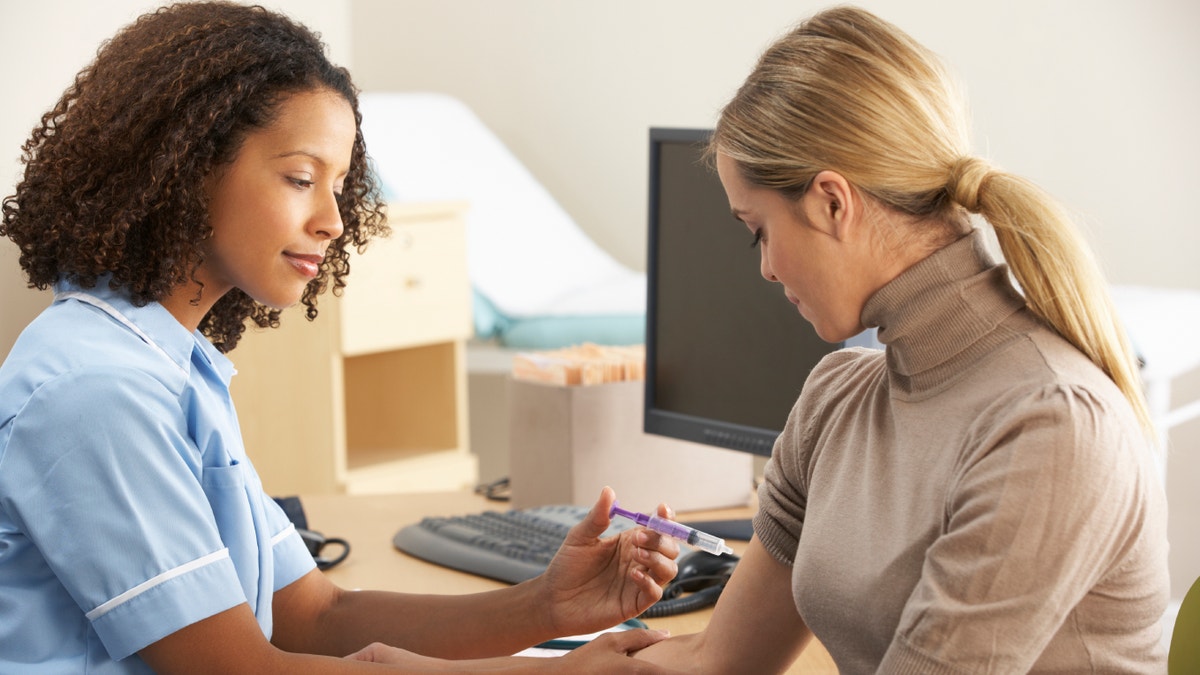
Mother comforting daughter having injection (iStock)
The top cancer centers in the U.S. jointly called for an increase in vaccination against the human papilloma virus, or HPV, saying low uptake of the three-shot regimens amounts to a “public health threat” and a major missed opportunity to prevent a variety of potentially lethal malignancies.
In a statement issued Wednesday, all 69 of the nation’s National Cancer Institute-designated centers urged parents and health-care providers to “protect the health of our children” by taking steps to have all boys and girls complete the three-dose vaccination by their 13th birthdays, as recommended by federal guidelines, or as soon as possible in children between 13 and 17 years old.
Currently, just 40% of girls and 21% of boys in the U.S. have received the vaccine, according to a report last year by the U.S. Centers for Disease Control and Prevention. The U.S. Department of Health and Human Services Healthy People 2020 initiative has set the goal for HPV vaccination for both boys and girls at 80%.
The first HPV vaccine, Merck & Co.’s Gardasil, was approved by the U.S. Food and Drug Administration in 2006. A second version of Gardasil and GlaxoSmithKline PLC’s Cervarix are now on the market. Neither company was involved in development of the cancer centers’ statement, those involved in the effort said.
The CDC estimates that 79 million Americans are infected with HPV, a sexually transmitted virus that causes 14 million new infections each year. While the body’s immune system fights off the virus in most cases, certain high-risk strains are responsible for cancers of the cervix, anus, and various genital sites as well as a growing rate of oropharyngeal or throat cancers, all told affecting about 27,000 patients a year in the U.S.
“We have everything we need to eliminate at least cervix cancer and many other HPV-related cancers and we haven’t taken advantage in this country,” said Lois Ramondetta, professor of gynecologic oncology at University of Texas MD Anderson Cancer Center, Houston. She said she is already seeing patients in their 20s and 30s who have developed precursors to cancer that she says could have been prevented had they been vaccinated.
